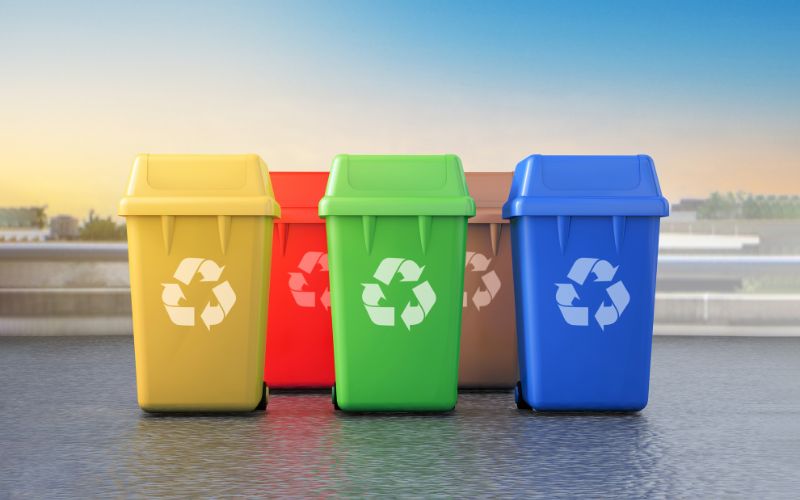Plastic waste has become a global crisis, with millions of tons of plastic entering our oceans, landfills, and natural environments every year. Tackling this issue requires more than individual action; it demands a concerted effort from governments, industries, non-governmental organizations (NGOs), and communities. Collaborative efforts in plastic waste management are crucial for developing and implementing effective strategies to reduce, recycle, and manage plastic waste sustainably. Here’s an exploration of how various stakeholders are working together to address this pressing challenge.
Government Initiatives
Regulatory Frameworks and Policies
Governments play a pivotal role in plastic waste management by establishing regulatory frameworks and policies aimed at reducing plastic pollution. These regulations often include bans on single-use plastics, mandatory recycling programs, and incentives for the use of biodegradable and compostable materials. For example, the European Union’s Directive on Single-Use Plastics targets the reduction of specific plastic products that are commonly found in marine litter, promoting alternatives and encouraging recycling.
Infrastructure Development
Governments also invest in the development of waste management infrastructure, such as recycling facilities, waste collection systems, and treatment plants. These investments are crucial for ensuring that plastic waste is properly sorted, processed, and recycled, reducing the amount that ends up in landfills or the environment.
Industry Participation
Sustainable Product Design
Industries are increasingly recognizing their responsibility in managing plastic waste and are adopting sustainable product design practices. This includes using recycled materials in manufacturing, designing products for easier recycling, and reducing plastic packaging. Companies like Unilever and Coca-Cola have committed to using a significant percentage of recycled plastic in their packaging, demonstrating how industry leaders can drive change.
Extended Producer Responsibility (EPR)
Extended Producer Responsibility (EPR) programs require manufacturers to take responsibility for the entire lifecycle of their products, including end-of-life disposal. This approach incentivizes companies to design products that are easier to recycle and to invest in recycling infrastructure. EPR programs have been implemented in various countries, including Germany and Japan, leading to higher recycling rates and more efficient waste management systems.
NGO and Community Involvement
Awareness Campaigns and Education
Non-governmental organizations (NGOs) and community groups play a vital role in raising awareness about plastic pollution and educating the public on sustainable practices. Campaigns like the Plastic Free July challenge individuals to reduce their plastic use, while organizations like Ocean Conservancy lead initiatives to clean up plastic waste from beaches and waterways.
Community Recycling Programs
Community-led recycling programs are essential for managing plastic waste at the local level. These programs often involve setting up collection points for recyclable plastics, organizing cleanup events, and educating residents on proper recycling practices. By engaging communities, these initiatives foster a sense of responsibility and collective action towards reducing plastic waste.
Collaborative Partnerships
Public-Private Partnerships
Public-private partnerships bring together the strengths of both sectors to tackle plastic waste more effectively. Governments can provide regulatory support and funding, while private companies offer innovation, technology, and operational expertise. An example of such a partnership is the Alliance to End Plastic Waste, which includes companies like Dow, BASF, and Shell, working together with governments and NGOs to develop solutions for plastic waste management.
Global Alliances
Global alliances and international cooperation are critical for addressing the transboundary nature of plastic pollution. Initiatives like the United Nations Environment Programme’s (UNEP) Clean Seas campaign and the Global Plastic Action Partnership (GPAP) bring together countries, businesses, and civil society to develop global strategies and share best practices for reducing plastic waste.
Technological Innovations
Advanced Recycling Technologies
Technological advancements are crucial for improving plastic waste management. Innovations in recycling technologies, such as chemical recycling and pyrolysis, can convert plastic waste into valuable resources, reducing the need for virgin plastic production. These technologies are being developed and implemented through collaborative efforts between research institutions, industries, and governments.
Data and Monitoring
Accurate data and monitoring are essential for understanding the scope of plastic waste and measuring the effectiveness of management strategies. Collaborative efforts in data collection and analysis, such as the Global Plastics Monitoring System, provide valuable insights that inform policy decisions and track progress towards plastic waste reduction goals.
Conclusion
The challenge of plastic waste management requires a multifaceted and collaborative approach. By working together, governments, industries, NGOs, and communities can develop and implement effective strategies to reduce plastic pollution, promote recycling, and manage plastic waste sustainably. Collaborative efforts harness the strengths and resources of diverse stakeholders, fostering innovation and driving meaningful change.
As we continue to confront the plastic waste crisis, it is essential to build on these collaborative efforts, support sustainable practices, and engage in continuous dialogue and cooperation. Through collective action, we can create a future where plastic waste is managed responsibly, and our environment is protected for generations to come.


